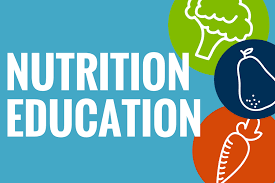A Nigerian nutritionist and researcher at Utah State University, Oluyemisi Akinsola, has called on the government to embed age-appropriate nutrition education into school curricula as a strategic move to combat the growing issues of malnutrition and non-communicable diseases (NCDs) in the country.
In a statement released on Wednesday, Akinsola emphasized the urgent need for proactive nutrition education, especially among young Nigerians, to address poor dietary habits and the widespread misinformation often promoted through social media and unverified sources.
“Schools must incorporate food and health education suited to each age group. This will help the next generation make informed choices about their diets,” she said.
Akinsola also advocated for science-backed public health campaigns across radio, television, and social media platforms — delivered in local languages and culturally relevant formats — to correct diet myths and misleading health trends. She stressed the role of regulatory bodies like the National Agency for Food and Drug Administration and Control (NAFDAC) and the Federal Ministry of Health, urging them to intensify efforts in combating false health claims, particularly online.
Highlighting the influence of social media on food choices, Akinsola noted that detox teas, juice cleanses, and extreme diet plans are increasingly popular — not due to scientific validation but because they are trendy. She warned that many of these fads are rooted in misinformation with harmful health implications.
According to the 2021 Nigeria Multiple Indicator Cluster Survey, only 31% of children aged 6 to 23 months meet the minimum acceptable diet standard, underscoring the scale of the crisis.
Adding to the concern, Akinsola pointed to Nigeria’s current economic struggles. Data from the December 2024 Selected Food Price Watch revealed a 91.6% increase in average food costs over the previous year. For instance:
- Brown beans (1kg) surged by 187.29% (from ₦870.67 to ₦2,501.32),
- Onion bulbs (1kg) jumped by 111.74% (from ₦971.86 to ₦2,057.81).
Other staples like local rice, beef, and palm oil also saw significant price hikes, straining household food budgets and pushing families toward cheaper, less nutritious options.
In urban centres, Akinsola noted a worrying rise in overweight and obesity rates, particularly among adults. She linked this to an increase in NCDs such as diabetes, hypertension, and heart disease, which now account for nearly 28% of all deaths in Nigeria, according to the World Health Organisation.
“Nutrition is not a regular part of our school or community conversations. Most children grow up without understanding basic nutrition concepts like balanced diets or food labels,” she added.
She called for the deployment of trained dietitians to every local government area, ensuring people have access to accurate, evidence-based guidance.
Akinsola encouraged individuals to be cautious about trendy diet advice, urging them to ask critical questions:
“Is this backed by evidence? Who is recommending it, and are they qualified?”
She also called on Nigerians to share verified nutrition information and consult registered dietitians when in doubt.
The urgency of the situation was echoed by UNICEF, which recently warned that 1.3 million children under five suffering from severe acute malnutrition may soon lose access to treatment due to funding gaps. According to Kitty Palais, UNICEF’s Deputy Executive Director, Nigeria could run out of Ready-to-Use Therapeutic Food (RUTF) by the end of May.
Palais emphasized that the solution must go beyond treatment and include preventive nutrition services, such as breastfeeding support, micronutrient supplementation, and basic healthcare access for children.
“Preventing malnutrition must be the priority. Waiting until children become severely affected before responding is far too late,” she said.





